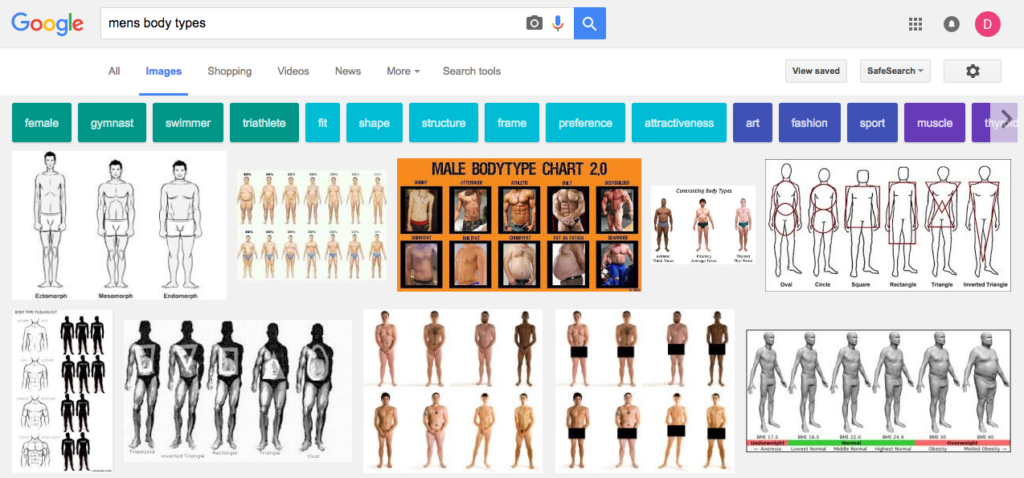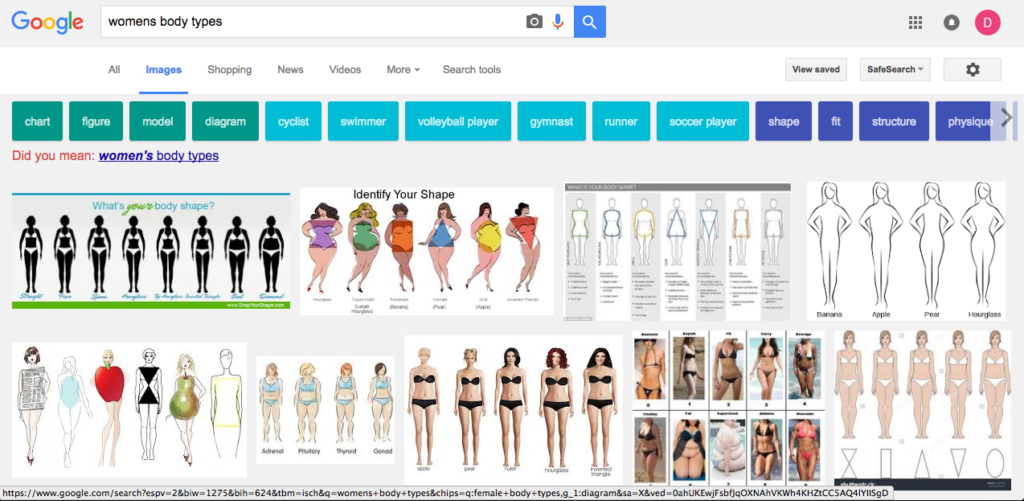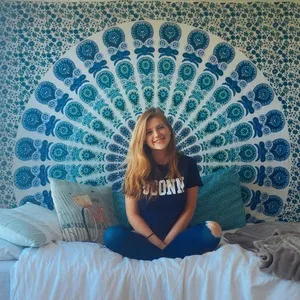We’ve all heard the centuries-old adage: dress for your body. I have no qualms with dressing in the most flattering clothing for my body, that’s not the issue.
The issue is when women’s body types are referred to as apple, pear, or banana.
I’m trying to dress myself, not a fruit. There’s something seriously disturbing about comparing my body to something people consume. And I know it sounds like some crazy feminist tangent to get upset about having a body shape similar to that of a fruit, but when you look at the use of women’s bodies in daily advertising and the strange push to connect us to food, a host of problems arises.
If Carl’s Jr. actually had quality, delicious looking food, they wouldn’t need a model to bare all this skin just to sell their products. Not only is stripping women down for a food advertisement offensive, but it objectifies the woman just as much as it does the food. The burger isn’t the only mouthwatering “treat” being offered; the woman is suggested to be just as easy to consume. She’s a person, though, not a treat. (And let’s be real, there’s no way you look that good and eat Carl’s Jr.)
This is actually a common theme in lots of advertising. The idea is that if an attractive woman is eating the food (or more likely just holding it without planning on actually taking a bite,) her allure will make the food seem like a much more appealing buy. But I’d just like to suggest substituting puppies in place of women in these sorts of situations. They’re just as exciting, and they’ll probably actually eat the food being advertised.
In this weird way, putting women on the same platform as food makes them seem equal. Both easily obtainable, to be enjoyed, and then casually wasted. Burger King even went so far in an ad as to sexualize a freakin’ sandwich without the model’s consent. Needless to say, she was very unhappy with being the posterchild for a sexy sandwich. The ad is demeaning and frankly weird AF. The sandwich would have been awesome enough without the weird sexualization.
Even Arby’s jumped on this train of objectification, going so far as to simulate women’s breasts with literal burgers. Instead of “I’m thinking Arby’s” it just makes me say “I’m thinking no.” It’s been done before: “jugs” of hot sauce, watermelons, anything even vaguely boob-shaped. It’s been overdone, and frankly, boobs are much better than any food.
The creepy tagline underneath reads “We’re about to reveal something you’ll really drool over,” and frankly, it’s quite gag-worthy. Nobody should be drooling over women, nor should it be even remotely similar a reaction to seeing food.The comparison needs to stop, because it’s strange and unnecessary and takes women’s bodies to a new level of inhuman.
Aside from creepy advertising, though, this weird normalcy of comparing women to food has crept into our everyday lives and we don’t seem to notice. In a scary article on the Daily Mail titled “Are Women Going Pear Shaped?” the huge emphasis and draw of this article seems to be about the pear shape coming back instead of the rising rates of obesity.
“Levels of obesity have trebled in the last 20 years and when women deposit fat they have a tendency to put it on their hips and thighs. We are eating far more calories than we actually need,” Dr. Susan Jebb, deputy chairman of the Association for the Study of Obesity told Daily Mail. Sprinkled between her alarming quotes about the rising trend of obesity in women are hip and waist measurements, model aspirations, and retailer clothing sizes. Clearly these are the more important things. Really.
If women are getting fatter, maybe we should write more articles like “Obesity Rates are Rising: Eat Less, Exercise More.” Focus should be less on the shape we are, and more on how healthy we are. Shouldn’t we be telling women more about how much better they’ll feel and how much healthier they’ll be with exercise and clean eating, and less about the shape they are vs. the shape they should be? Shouldn’t we be telling women less about looking like pears, and more about eating pears?
Even further, stories are floating around the internet saying things like “Which Women’s Body Shape is the Best?” and how there’s only a certain amount of body types that women can be. Dude, nobody fits in a perfect mold. The truth is, it doesn’t matter what shape you are. You don’t necessarily look better as an apple or a pear; you look good when you’re fit and healthy.
The world is comparing women to shapes — reducing us to hip and waist ratios — instead of discussing BMI, clean eating, and good exercise. It speaks volumes to the way we view women: they should be shapely, not in shape. It’s a throwback to the days women wore corsets, starved for air for that desired hourglass look, instead of indulging in the awesome shapes their healthy bodies could have provided. Let’s be real: I may never be an hourglass, but it’s not worth stuffing myself in a corset for 10 hours a day (gotta make some room for the mac n’ cheese, ya know?)
Furthermore, men aren’t viewed as watermelons, cucumbers, or pineapples. “Yo, that dude has a swimmer’s bod,” (the classic inverted triangle). Or “Ooh, he’s got a dad bod,” (the pudgier look). Men are more often defined by the things they do, and less by inanimate objects. I have my fingers crossed that one day people will be saying, “Hey, she’s got a lawyer’s build,” or “Damn, check out dat mom bod.”

Screenshot courtesy of google.com
Even a quick google search shows the main differences. Men are shown as classic shapes. Not a single one is compared to something edible. Squares, triangles; mesomorph, ectomorph; lean, fit.

Screenshot courtesy of google.com
Search for women’s body types, though? FRUIT. Under almost every single body shape in every single chart, despite whatever shapes may be drawn on these women, are FRUIT labels.

Photo courtesy of bodybuilding.com
I’m not necessarily upset about having the shape of my body compared to a specific fruit. It’s more about the bizarre way we casually link women to food and don’t seem to notice. That’s why it’s not so crazy to get upset about being labelled as a fruit shape when the world around us is reducing women to selling points for food or somehow less active members of society than men. So yeah, I’m small on top and have big hips. But I’m not a pear, I’m a woman.


